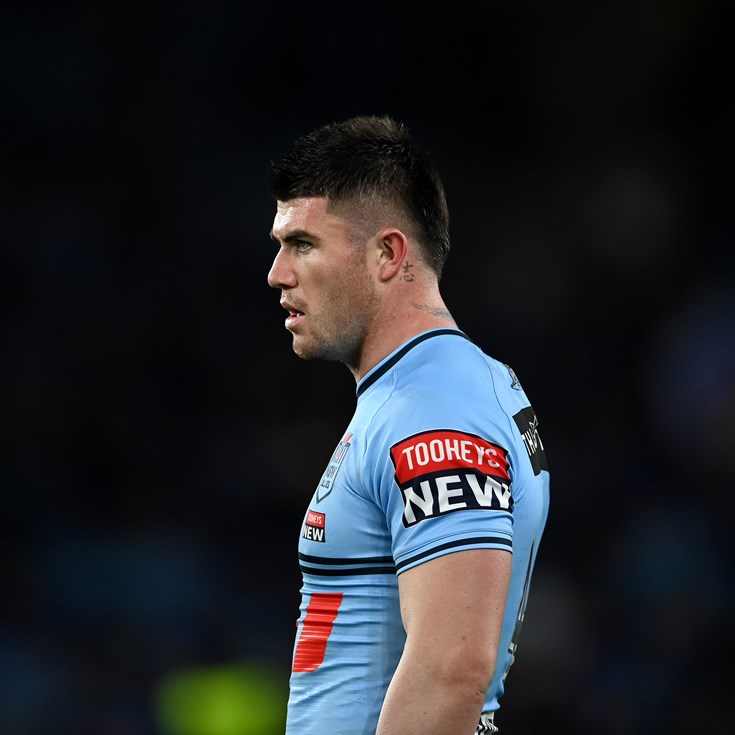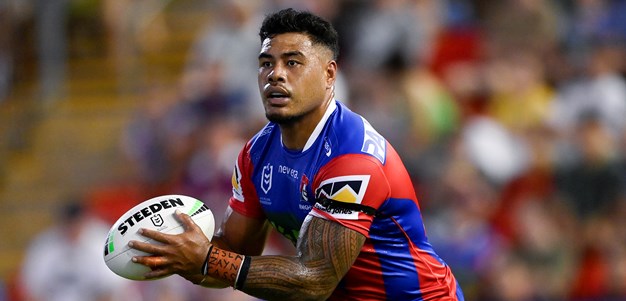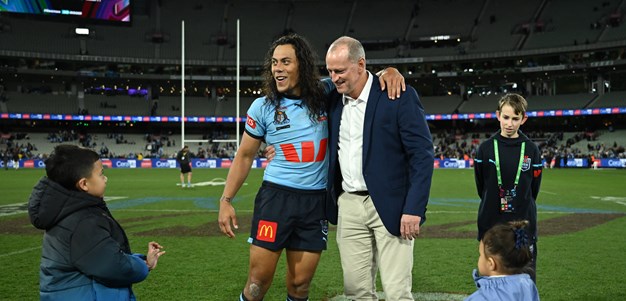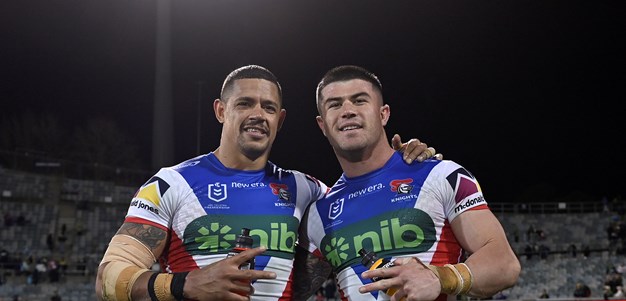Australian Rugby League Indigenous Council chair Katrina Fanning and All Stars coach Laurie Daley believe the person responsible for racial abuse of Latrell Mitchell should be offered the opportunity to hear why their comments are so hurtful.
The racist attack of Mitchell on social media was discussed on Monday by the new ARLIC board, which also includes former Dally M medallist and All Stars founder Preston Campbell, Jillaroos forward Tallisha Harden and Fox League presenter Hannah Hollis.
Mitchell, who chose to play in February's All Stars match rather than travel to England with Sydney Roosters for the World Club Challenge, is a member of the Indigenous players advisory group, which is chaired by former prop George Rose.
While Mitchell has received widespread support across the game from NRL CEO Todd Greenberg down for calling out racism, Fanning and Daley feel there is also an opportunity to educate people on the reasons such comments are unacceptable.
“That is something I would certainly like to see as part of the strategy of the game,” Daley said. “If people are willing to put their hand up and admit their mistake then come in and sit down with Latrell, or the council or Indigenous people and find out why they are upset.
Club CEOs rally behind Latrell Mitchell after racial taunts
“I think most people would walk away and say I didn’t realise I had caused that much hurt, I now understand why it does, I won’t do that again and I will pull someone else up if they do that.”
Fanning said: “No one should be left behind. Certainly where people have made a mistake - and that’s what this is - and they have got a willingness to do better, and to learn more then, certainly we should provide opportunities for that.”
The proposal is similar to the mediation process the NRL has used in the past for dealing with on-field racial incidents, with the offending player offered the opportunity to learn why his comments were hurtful.
The NRL has not had to deal with an on-field incident involving racism for a decade.
“If we are leaders and we want to drive change you just don’t say ‘you’re banned for life’ and that’s the end of it,” Daley said.
“If that person wants to show any remorse I am sure the league would be open to helping them understand the effect that he or she has had on Latrell.
“They probably aren’t aware of the impact that does have on particular individuals so the league could bring them in and explain why it is unacceptable, how they have made someone feel and the understandings and the meanings behind some of the things they have said.
“If they are willing to put their hand up and admit their mistake I am sure the league would be big enough to bring them in.
Indigenous All Stars War Cry
“The person might not be open to that but I think if they are I think they can help change their perception and mentality on racism.”
As the longest-serving member of the ARLIC board, Fanning can remember a time when the game’s Indigenous council had to take the lead in speaking out against racism.
However, more than nine years after the first All Stars match in 2010, Fanning said the NRL was now setting standards for the community.
“Every layer of the organisation has an Indigenous voice at the table, from the [ARL] Commission right through,” said Fanning, who made 24 international appearances for the Jillaroos, including the inaugural women’s Test against New Zealand in 1995, and is a member of the Raiders board.
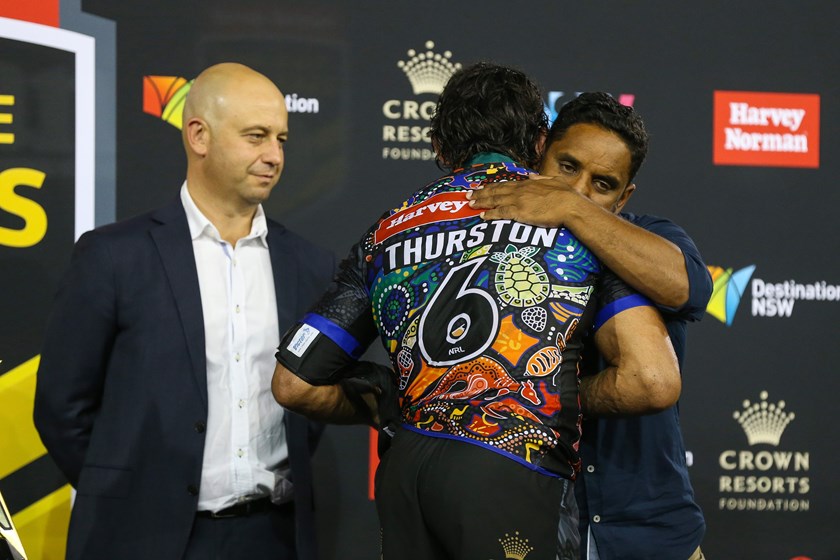
“The employment numbers here [at the NRL] are over seven per cent, which in our industry is probably the best and across government and corporate Australia is nearly double what most of them achieve.
“We are just part of a much bigger group here which creates an opportunity and pathway for people to be their best selves.
“Rugby league has a really strong track record in taking on social issues and racism in our country is one of those. We also provide leadership support for our players to manage and handle those things when it personally effects them or their families.
“Rugby league is a game that gives us confidence to take on those bigger issues and a support base that gets behind us because they feel invested in Latrell or other players and feel a real connection to them. That is when real change will happen, and rugby league is able to do that.”
The ARLIC board, which also includes Nathan Towney, Leann Wilson, Toby Adams and representatives of the QRL, NSWRL/CRL and Touch Football Australia, spent time with Greenberg, NRL COO Nick Weeks, ARLC commissioner Megan Davis and other senior officials.
Among the topics on the agenda were the game’s support for the Uluru Statement, the national anthem debate and next season’s All Stars match.
“All Stars isn’t just an entertainment piece, it really has been a vehicle for change in many different ways,” Fanning said.
“All Stars is a really easy and public way for people to show support. If nothing else, they turn up to the game and they might learn something else on the day. That is a pretty powerful thing for the sport to do.”
The views in this article do not necessarily express the opinions of the NRL, ARLC, NRL clubs or state associations.

